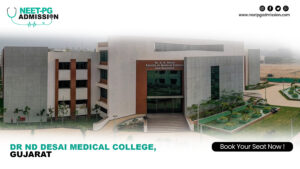Why Gulf NRI Parents Prefer MBBS in India for their Children?
Studying medicine has traditionally been one of the most sought-after career choices among children of Gulf NRIs (Non-Resident Indians). With shifts in policy, educational standards and new quota opportunities, more…
Studying medicine has traditionally been one of the most sought-after career choices among children of Gulf NRIs (Non-Resident Indians). With shifts in policy, educational standards and new quota opportunities, more NRI parents are now looking at medical education in India for their children. In this blog, we explore why Gulf NRI parents prefer MBBS in India, what’s changed in 2025, and what they should watch out for when making this decision.
Key Reasons Behind the Growing Preference for MBBS in India Among Gulf NRI Parents
Over the years, more Gulf-based Indian families have been choosing to send their children to India for medical education. This shift is driven by a mix of academic credibility, affordability, accessibility, and emotional comfort. Below are the primary factors that explain this growing trend.
- Familiar Cultural and Linguistic Environment
Choosing to stay closer to home brings several advantages. Studying in India means a familiar culture, language, food, and social environment, which reduces stress for students. For Gulf-based NRI families, the time difference, travel costs, and home-visit possibilities are far more manageable when the university is in India. A strong support network of relatives, friends, and community offers emotional comfort, while the use of English as a medium of instruction ensures an easy transition for students educated in international or CBSE schools.
- Recognised Medical Degrees and Global Mobility
Parents want assurance that their child’s medical degree will be valid and widely recognised. Indian MBBS degrees from colleges approved by the National Medical Commission (NMC) are accepted both in India and abroad, serving as a reliable foundation for further education or professional practice. Many foreign universities require additional licensing or face recognition issues, which can complicate career plans. A degree from an established Indian institution allows flexibility to pursue postgraduate options within India or overseas, ensuring long-term professional mobility.
- Cost-Effectiveness Compared to Foreign Alternatives
For Gulf NRI families, India offers a practical mix of educational quality and affordability. Studying abroad often involves significant expenses, including high tuition fees, travel, and living costs. In contrast, studying in India reduces financial pressure while maintaining academic credibility. Parents can also supervise their child’s progress more closely. Recent policy measures, such as Karnataka’s 2025–26 fixed fee of ₹25 lakh per NRI-quota seat, have made access more predictable and transparent. Overall, India provides better value compared to expensive foreign medical destinations.
- Strong Regulatory Reforms and Improved Infrastructure in India
India’s medical education system has been undergoing steady reform, giving parents more confidence in quality assurance. The NMC has tightened standards, increased seat capacity, and improved oversight. Modern medical colleges now feature advanced laboratories, teaching hospitals, simulation centres, and research opportunities, bringing them closer to international benchmarks. For Gulf-based NRIs, this offers the comfort of global-level education without the distance or uncertainty of studying abroad.
- Attractive Seat Availability Under NRI Quota and State Policy Changes
The expansion of NRI quota seats in government medical colleges has created more opportunities for eligible students. For example, Karnataka has introduced a 15% NRI quota in 2025–26, covering 450 additional MBBS seats in government colleges at a fixed fee. This policy brings transparency and predictability to admissions, helping parents make informed choices. Many Gulf-based families view this as a realistic chance to secure seats in reputable Indian colleges without resorting to costly private or foreign alternatives.
- Proximity to Family, Better Supervision and Easier Logistics
For Gulf families, India’s proximity offers clear logistical benefits. Frequent travel, shorter flight times, and cultural familiarity make the transition smoother for students. Parents gain peace of mind knowing their child is only a few hours away, and extended family members can offer immediate support if needed. The reduced physical and emotional distance strengthens student wellbeing and parental reassurance.
- Long-Term Career Planning and Transition to Practice
Many NRI parents consider long-term career outcomes when deciding where their child should study medicine. An Indian MBBS degree enables graduates to pursue postgraduate studies in India or apply internationally with recognised credentials. If families plan to return to India or maintain professional ties in the Gulf, this pathway aligns well with both scenarios. The structure of the Indian system ensures fewer risks related to recognition or licensing, making it a practical foundation for a lifelong medical career.
- Transparent and Improving Admission Mechanisms for NRIs
The admission process for NRI quota seats in India is becoming more transparent and merit-based. Candidates must qualify in the NEET UG exam, ensuring academic competence. State-level policies, such as Karnataka’s 15% NRI quota with fixed fees for 2025–26, bring clarity and predictability. However, vigilance is still required, as there have been cases of forged NRI documents and fraudulent intermediaries. Parents are advised to verify documentation and ensure that the college is approved by the NMC to avoid future legal or recognition issues.
Studying MBBS in India vs Abroad (for Gulf NRI families)
Let’s explore the table below to see the difference between MBBS in India vs MBBS in abroad.

Important Considerations & Tips for NRI Parents
When choosing MBBS in India for their child, Gulf NRI parents should keep these in mind:
- Verify college accreditation: Ensure the medical college is approved by the NMC and the degree will be recognised.
- Check documentation rigorously: For NRI quota admission you will need valid NRI status proofs, NEET counselling credentials, fee schedule.
- Understand the seat-type and fee structure: NRI-quota seats often carry higher fees; check total cost (tuition + hostel + travel) and timeline.
- Clarify long-term plans: If after MBBS your child wishes to practice in Gulf or abroad, check degrees and licensing compatibility.
- Plan for re-location or family involvement: Staying in India still means you may want periodic visits; choose a location that makes this feasible.
- Evaluate infrastructure & teaching hospital access: One key difference between colleges is how much clinical exposure and modern facilities they offer.
- Be aware of regulatory changes: Policy changes (like quotas, fee caps, seat matrix) may affect future batches, so stay updated.
- Avoid shortcuts or “guaranteed seats” scams: Reports exist of forged documents to claim NRI seats illegally.
- Explore student support & accommodation: For an NRI student living away from home, comfort, supervision and peer group matter.
- Consider language and culture adaptation: Even though India is familiar, regional differences (state, city) matter – pick a region comfortable for the family.
Final Words
For Gulf NRI parents who seek quality medical education, cost-effectiveness, strong regulatory recognition, and cultural proximity, choosing MBBS in India makes compelling sense. The recent policy enhancements like NRI-quota seats, such as the 15% reservation in Karnataka from 2025-26, further strengthen this option. By staying informed, verifying credentials, and planning carefully, parents can help their children embark on a medical career that is well-recognised, stable, and connected to both India and the Gulf region. If you are an NRI looking to pursue MBBS in India, reach out to Olympia Education. Our team can guide you through eligibility, documentation, counselling, and admission support to help you secure the right medical college for your goals.
Contact Us






